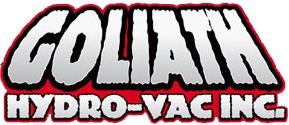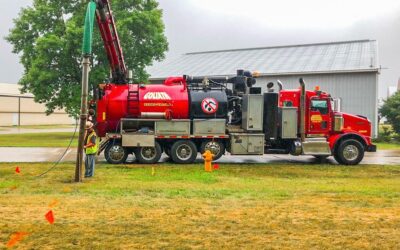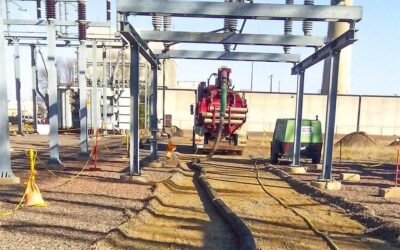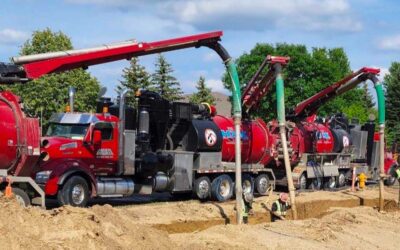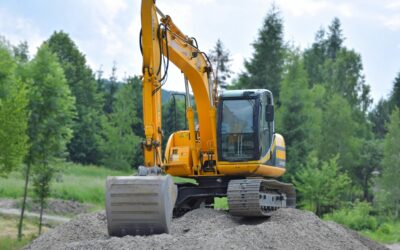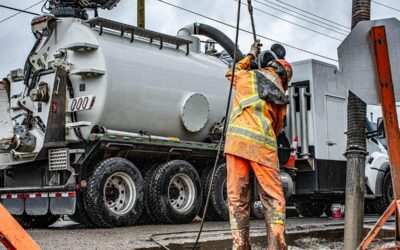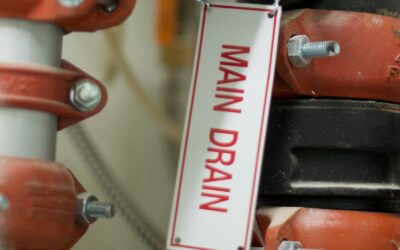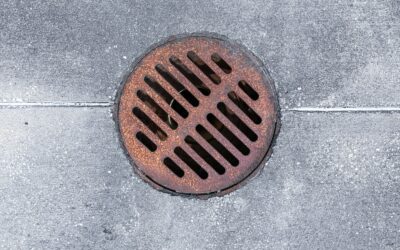Hydrovac Truck Winter Maintenance Tips: Keeping Your Fleet Ready for Cold Weather
Hydrovac Truck Winter Maintenance Tips
Hydro-excavation trucks, also known as hydrovac trucks, utilize high-pressure water to break up soil and a vacuum system to remove the debris, making them ideal for precise excavation tasks. Given their specialized nature, these trucks, like all machinery, require regular maintenance. However, in the cold winter months, hydrovac trucks face unique challenges that require additional care.
The demands of cold weather can take a toll on machinery, and hydrovac trucks are no exception. The biting cold, frosty mornings, and potential snow accumulation can compromise the efficiency and lifespan of these specialized vehicles. Whether you’re a fleet manager, operator, or maintenance technician, proactive winter maintenance will ensure smooth and safe operations.
In this article, we will discuss the key considerations and best practices for cold weather hydrovac care. From engines to hydraulic systems, we’ve got you covered.
Why Proactive Hydrovac Truck Winter Maintenance is Important
Before diving into the details, it’s crucial to understand the significance of winter care for hydrovac trucks. Hydrovac trucks, with their specialized capabilities for soil excavation and debris removal, are vital assets throughout various industries (like construction to utilities).
However, their intricate machinery can be particularly vulnerable to the rigors of winter. Here are several key reasons highlighting the importance of proactive winter maintenance:
Enhanced Safety: One of the foremost advantages of winter maintenance is the assurance of safety. Cold weather can make mechanical components brittle and less responsive. By addressing potential problems before they escalate, you reduce the risk of malfunctions that can endanger operators and other site workers.
Longevity of Equipment: Consistent maintenance ensures that the wear and tear on your hydrovac trucks, especially during the challenging winter months, is minimized. This means your trucks are likely to have a longer operational lifespan, offering better value for your investment.
Reduced Operational Costs: While there’s an immediate cost to maintenance, being proactive can lead to substantial savings in the long run. Addressing minor issues before they escalate can avert costly major repairs or replacements. Plus, regular checks and tweaks ensure optimal fuel efficiency, further curbing operational costs.
Consistent Productivity: In industries where downtime can mean significant monetary losses, ensuring your equipment is always ready to operate is invaluable. Proactive maintenance results in fewer unscheduled stops and breakdowns, so projects stay on track and deadlines are met.
Preserving Resale Value: Should there come a time when you decide to upgrade or sell your hydrovac truck, a well-maintained machine will fetch a better resale value. Buyers and dealers often prioritize equipment with a solid maintenance record, knowing it’s likely to be more reliable.
Peace of Mind: Beyond the tangible benefits, there’s an intangible yet valuable advantage to proactive maintenance: peace of mind. Knowing that your fleet is well-prepared to face the challenges of winter allows you and your team to focus on tasks at hand, rather than potential equipment failures
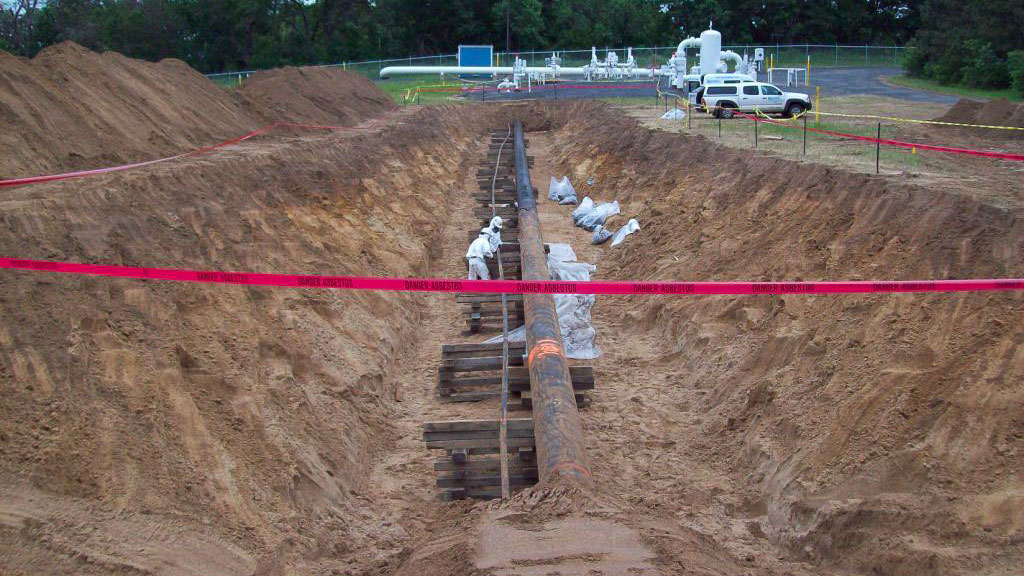
Pre-Winter Hydrovac Truck Maintenance Checklist
1 – Check and Change Oil
Oil is the lifeblood of any vehicle, ensuring smooth operation by reducing friction among moving parts. In colder temperatures, the viscosity of the oil can increase, making it less effective at lubricating. Checking the oil level and its consistency is crucial before winter sets in. Using winter-grade oil, specifically formulated to retain its viscosity in low temperatures, can enhance engine performance and reduce the risk of cold starts. Regularly changing the oil also helps remove contaminants that may accumulate over time, protecting the engine from potential damage.
2 – Inspect Batteries
Batteries often bear the brunt of winter’s wrath. Cold conditions can reduce the chemical reactions within the battery, making it less efficient at holding and delivering charge. It’s essential to inspect for any visible signs of damage or corrosion, especially around the terminals. Keeping the battery fully charged ensures that it’s always ready to deliver the necessary power, even on the coldest days. Additionally, insulating battery casings or considering a battery warmer can be beneficial in extremely cold environments.
3 – Inspect Hydraulic Fluid
The hydraulic system plays a pivotal role in hydrovac trucks, powering many of its essential functions. Hydraulic fluid can become more viscous in cold conditions, affecting its flow rate and efficiency. Regularly checking the fluid ensures that it remains uncontaminated and at the optimal level. Switching to a hydraulic fluid designed for winter can enhance system responsiveness and reduce the risk of fluid-related malfunctions.
4 – Test Hydraulic Hoses
The hydraulic hoses are conduits for the fluid, making their integrity vital to the system’s overall functionality. Cold weather can render hoses brittle, increasing the risk of cracks and leaks. A thorough visual and tactile inspection can help detect early signs of wear. Replacing compromised hoses before they fail not only ensures uninterrupted operation but also safeguards against potential hydraulic fluid spills, which can be environmentally hazardous.
5 – Drain Water System
The water system in hydrovac trucks is inherently at risk during winter, given water’s propensity to freeze. A frozen water system can lead to blockages, making operations cumbersome or even causing component damage. Draining the system when not in use is a simple yet effective preventative measure. Using heaters or antifreeze agents can also ensure the water remains in a liquid state, ready for use even in sub-zero temperatures.
6 – Check Water Pump
The water pump, responsible for maintaining the pressure and flow of water in the system, is a cornerstone of the hydrovac truck’s functionality. A malfunctioning pump can severely hamper operations. Before winter, it’s essential to inspect the pump for wear signs, ensuring seals are intact and the pump functions at peak efficiency. Taking preemptive measures, like insulating the pump or using heating elements, can prevent freeze-related damages and prolong the pump’s lifespan.
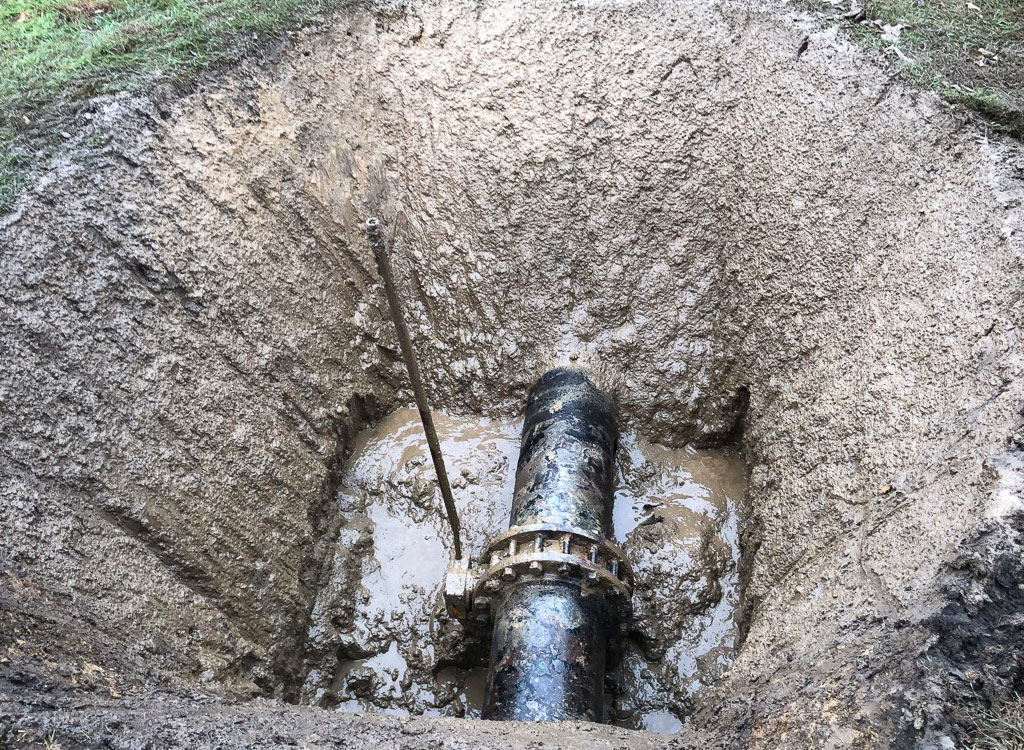
Hydrovac Truck Operating Tips for Winter Conditions
Operating hydrovac trucks in winter doesn’t merely hinge on pre-season maintenance but also on real-time, on-the-job practices. By integrating operating techniques tailored to chilly conditions, one can optimize performance and safety. Here are some key operating tips for hydrovac trucks during winter:
Pre-Operation Warm-Up: Starting a job immediately can place undue strain on the engine, which can be detrimental in the long run. Instead, take a few minutes to let the truck warm up. This not only ensures optimal performance but also goes a long way in preventing potential engine strains or damages due to the thickening of fluids in colder conditions.
De-Icing Procedures: It’s not uncommon for the boom to accumulate ice and snow. Before initiating any operation, it’s imperative to clear this buildup. A frozen boom can hinder maneuverability, compromising both efficiency and safety. Employing de-icing procedures or tools can ensure that the boom remains free from ice and operates smoothly, regardless of the surrounding temperatures.
Keep Water Lines Warm: The water system in hydrovac trucks is inherently susceptible to the freezing cold. If water lines freeze, it can cause system malfunctions or even lead to potential damages. An effective way to counter this is by ensuring the lines remain warm. This can be achieved by wrapping them with insulating materials or using heating elements.
Drive with Caution: When moving the hydrovac truck between job sites, drive slower than usual, and increase following distances. This allows ample time and space to react if the roads are slippery. Also, always check weather forecasts before heading out, and if conditions seem too adverse, consider postponing the operation if possible.
Regular Visual Inspections: Snow and ice can accumulate on various parts of the hydrovac truck. Periodically conduct visual inspections to ensure that vents are not blocked, and visibility from the cabin is unobstructed. Clearing off any snow or ice buildup can prevent many potential issues.
Stay Informed: Lastly, always be informed about the upcoming weather conditions. Being caught off guard by a sudden snowstorm or a drastic drop in temperature can be detrimental. Keeping an eye on the forecast can help you prepare and adjust your operational strategies accordingly.
Conclusion – Hydrovac Truck Winter Maintenance Tips
Proactive winter maintenance for hydrovac trucks goes beyond the immediate season’s preparation. It’s a comprehensive strategy that safeguards the efficiency, longevity, and reliability of your fleet, laying the foundation for consistent and cost-effective operations year-round.
Don’t let winter slow you down; instead, prepare your hydrovac trucks for the challenges ahead
Goliath Hydrovac Inc. has been in the excavation industry for over 20 years. We are a trusted provider of hydrovac services throughout the midwest. Goliath Hydrovac Inc. is committed to providing exceptional excavation services tailored to your specific needs.
Contact us at 612-727-3444 today to learn more about how Goliath’s hydrovac excavation services can benefit your operation.
RELATED POSTS
Hydrovac Excavation In The Winter: Cold Weather Digging
Do you believe that excavating in winter is more difficult, more expensive, and more time consuming? Is it...
What is Utility Potholing and Which Method is Best?
Utilities. They’re everywhere, enabling and protecting our comfortable, modern lives. Unfortunately,...
How Deep Can You Hydrovac Excavate?
Hydrovac excavators come in many forms and are often custom-built for the companies ordering them. This means...
Hydro Vacuum vs Air Vacuum Excavation: Pros & Cons
At first glance, hydro vacuum excavation and air vacuum excavation are confusingly similar. After all, their...
Hydrovac Excavation 101: Everything You Need to Know
Hydrovac excavation has been around, in one form or another, for decades now. However, a lot of professionals...
Hydrovac Excavation vs. Traditional Excavator: Which Method Is Better?
On the surface, excavation couldn’t be simpler. Just…remove the dirt. However, the choice of excavation method...
Choosing the Right Industrial Sewer Maintenance Services
The maintenance of industrial sewer systems is a critical aspect of ensuring the smooth operation of any...
How to Prevent Industrial Sewer Blockages
Industrial sewer blockages are not just a minor inconvenience; they can be a major hazard with significant...
Importance of Regular Sewer Inspections
Industrial sewer inspections are a critical component of maintaining a facility's infrastructure. These...
Essential Industrial Sewer Maintenance Tips
Industrial sewer maintenance is a critical aspect of maintaining the efficiency and safety of any facility....
